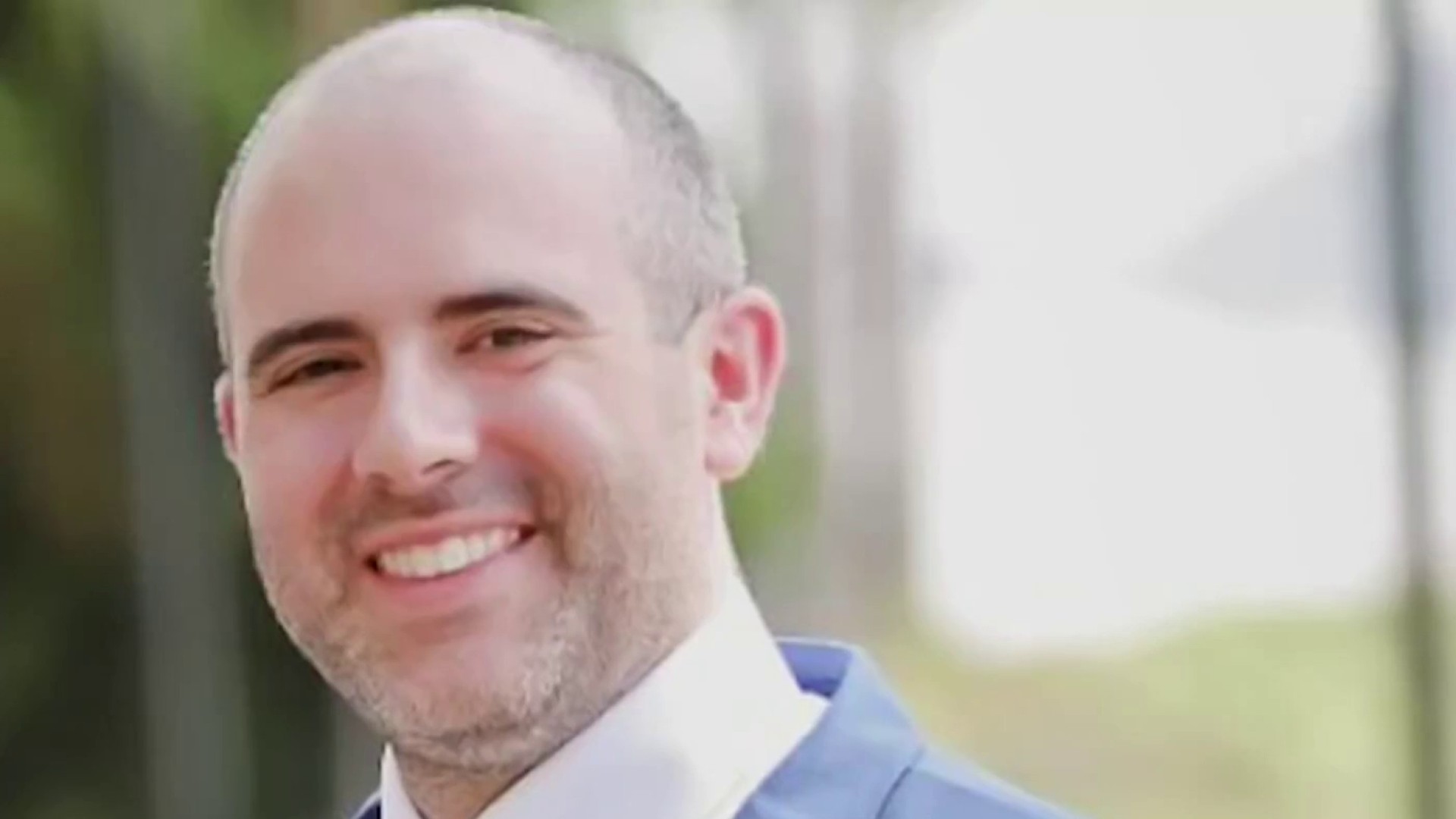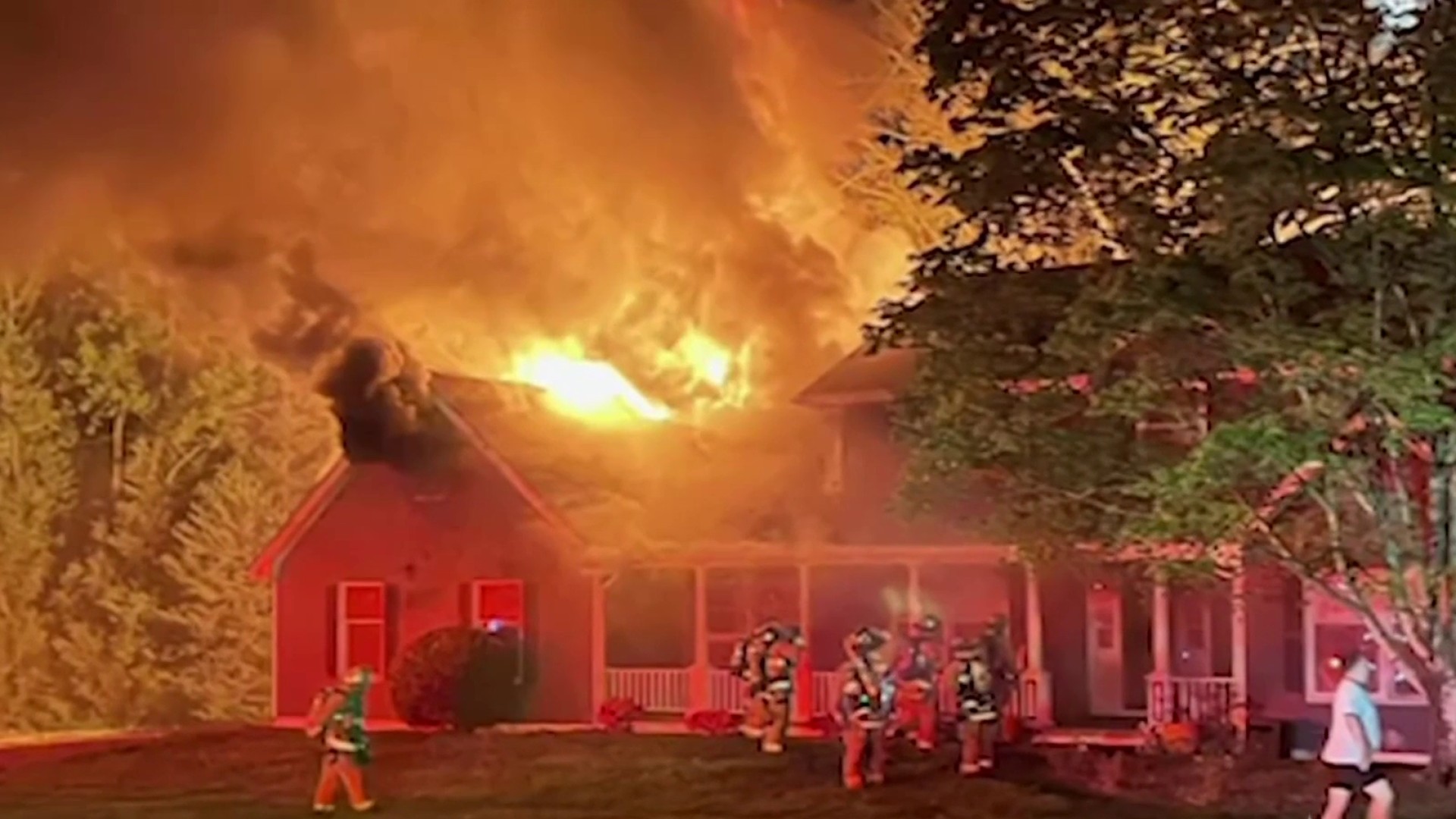Confused, scared and in desperate need of medication: It’s a terrible combination for people with dementia when they wander away from their homes.
That’s what Nancy Strohmeyer’s family thinks happened to her.
She spent her life taking care of other people, raising her own children while working as a Montessori teacher and a caregiver for the elderly.
"Over the last couple of months, she had been suffering from what we thought was rapid onset dementia," her son Kenneth Strohmeyer, Jr. said. He explained it happened so quickly, his mother abruptly lost about 30 pounds.
They have just one photo of what she looked like after the disease took control of her mind, a snapshot taken just hours before she vanished. “We were having a difficult time getting her out of her apartment,” her son said. Wandering “just wasn't one of the things we were really concerned about."
But Feb. 8, his 66-year-old mother disappeared, last seen on the sidewalk in front of her apartment complex – a building sitting next to heavy woods that feed into Great Seneca Creek in Germantown.
That's where the News4 I-Team met with Officer Jason Huggins of the Montgomery County Police Department.
He said he is the only full-time search coordinator in the greater Washington area -- there’s no one else like him in the region.
Local
Washington, D.C., Maryland and Virginia local news, events and information
Accoring to Huggins, dementia searches jumped more than 10 percent last year in Montgomery County. He expects that number to keep growing as more and more Baby Boomers reach retirement age.
"A person walking two miles an hour for six-and-a-half hours, the entire county is our search area,” Huggins explained. “No one can search that amount of property."
So he works with a team of eight officers specially trained to find the missing.
They use a lot of math and statistical models to plot out the highest probability areas to search first. They rely heavily on a book called “Lost Person Behavior” by Robert Koester.
Koester lives in Charlottesville, Virginia, but travels the world training search crews to find all kinds of missing people.
"The fatality rate for dementia cases is twice that of lost children," Koester said. "For a long time in search and rescue we were used to looking for hikers and hunters and missing children and the dementia cases were not meeting the same patterns. They were closer. They were in locations that were briars, brambles, really thick sort of transitional zones and that was making our scratch our heads."
But by studying hundreds of real-life dementia cases, Koester created mapping software that allows police to simply drop an icon at the last known location and the computer will highlight the most likely places they should start searching.
Koester's research found dementia patients follow the same patterns. They walk in a relatively straight line until they bump into something, at which point they will stare at the object or lay down if they’re tired. “They won’t even think of turning around,” Koester explained.
Since most dementia patients tend to be older, they typically take the path of least resistance -- sticking to roads and trails that go downhill.
That often leads to water, which Koester said many mistakenly believe will be an easy, flat place to walk.
But if they get in trouble, they will not call out for help or even answer if someone calls out their name. "They'll watch a search team walk right by them without saying anything,” Koester said. “They think, ‘What are they doing in the woods?’ It doesn't even click that they're lost, they don't have that perception."
Koester explained the disease literally changes the way someone with dementia or Alzheimer's sees the world. "There's a loss of peripheral vision.” Koester intertwined his fingers to create a visor above his eyebrows and then placed his thumbs on his temples, effectively blocking out his sight on either side and above eye-level. “That’s all you're going to see,” he explained. The sight distance gets even worse in reality because “a lot of people with dementia are actually looking down at the ground."
In the woods, Officer Huggins put his hands in the same U-shaped position above his eyes and showed how someone with dementia will stop walking when they come to a small obstacle – in this case a medium-sized tree and some hanging vines.
"A person with dementia isn't going to push through this,” he explained. “This is enough. We look at it and we're like, ‘Why wouldn't you just walk around?’ With a person with dementia, this may be enough where they're like, ‘This is an impenetrable object. I can't go around it.’” At that point, Huggins started to stare at the tree trunk. “We will find them standing just like this," he explained.
Nancy Strohmeyer's children now wonder if their mother didn't realize her home was literally right next to her as she walked along the sidewalk and instead walked off into the woods trying to find it.
She's been missing for a month and the case has become personal for Huggins. After more than a decade of searching for people, she is the only dementia patient he has yet to find.
7 Tips for Helping Authorities Find Loved Ones With Dementia
If someone you loves has dementia, experts say it isn’t a matter of if they will wander, it’s when. Officer Laurie Reyes of the Montgomery County Police Department’s special Autism and Alzheimer’s Outreach unit offered these tips about what you can do now to help them find the person you love:
- Get an ID bracelet engraved with contact information and make them wear it. Police “often locate the individual before caregivers realize they’re missing,” Reyes said. Write their name on their clothing using permanent ink. Other experts also suggest purchasing a GPS tracking bracelet.
- Make it difficult for them to wander. Install an alarm if possible.
- Reach out to neighbors for support. Here’s a sample letter from MCPD you can use.
- Take full-length and a head-shot photos. Store them electronically so they can be sent to police quickly.
- Create a 911 “script” or form filled with details about your loved one and where they live, including a Google map of the area showing bodies of water. Do not hesitate to tell police about the dangers of drowning. Here’s a sample script from MCPD you can use.
- Register your loved one with the police if they offer the service. If you live in Montgomery County, you can register here.
- Call 911 as soon as you can.



